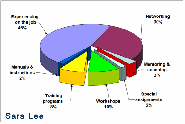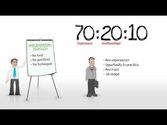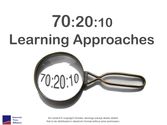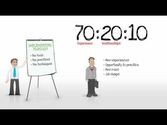-
About
- About Listly
- Community & Support
- Howto
- Chrome Extension
- Bookmarklet
- WordPress Plugin
- Listly Premium
- Privacy
- Terms
- DMCA Copyright
- © 2010-2025 Boomy Labs

 Martin Couzins
Martin Couzins
Listly by Martin Couzins
Is it a model or simply a ratio? This list curates links about the 70:20:10 model of learning.

Produced by DeakinPrime, the corporate education division of Melbourne’s Deakin University, this whitepaper provides a useful primer on the concept, from its origins to applications.

I first heard that 80% of corporate learning is informal in a presentation in late 2001 by the late Peter Henschel, then Executive Director of the Institute for Research on Learning. IRL used an anthropological approach to research that enabled them to see things others were missing.
So I've had a bit of a bugbear for a while and I'm starting to feel that I'm not alone. It's 70/20/10, the oft-quoted model from which we derive that the majority of learning happens from on the job experience, as opposed to learning from peers or in a formal learning environment.

Charles Jennings introduces the concept of moving away from purely classroom based learning, & towards the 70 20 10 learning journey.Live example - http://bit.ly/19O8Y54 Fuse Universal are industry experts whose learning platform - Fuse has been develop to deliver against the 702010 model - http://bit.ly/19O8Y5 ------------------------------------------- Fuse are fanatic innovators in knowledge sharing and learning experiences, who inspire and teach through creativity and storytelling.

The 70:20:10 Framework for Building Workforce Capability. Uploaded August 2011. (c) 2011 Charles Jennings Re-uploaded August 2014

@J3ro3nJ gave me this hint for a new myth, the 70-20-10 rule. We would only learn 10% from the formal learning situation, 20% through others and 70% through experience and practice. Check this video for some animated explanation: Doug Lynch busted this myth in a blogpost: Informal learning: 70-20-10.

When you ask people how they want to address a learning need, they usually say they want a training course. When you ask people how they learnt the majority of the stuff they do each day, they usually say they learnt it from experience.
